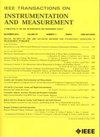Soft-Magnet-Based Position Estimation Using an Approximate Extended Kalman Filter With a Hybrid Analytical-Neural Network Model
IF 5.9
2区 工程技术
Q1 ENGINEERING, ELECTRICAL & ELECTRONIC
IEEE Transactions on Instrumentation and Measurement
Pub Date : 2024-11-13
DOI:10.1109/TIM.2024.3497169
引用次数: 0
Abstract
Soft-magnet (SM)-based position tracking is a new wireless magnetic tracking method that can reject ferromagnetic disturbances. Conventionally, position estimation is implemented either by a standard extended Kalman filter (EKF) using a dipole-based analytical measurement model or by an EKF or particle filter (PF) using a neural network model. The former method, however, fails to achieve satisfactory estimation accuracy due to the large modeling error, while the latter is time-consuming and fails to achieve real-time tracking. In this article, a hybrid analytical-neural network measurement model is built to improve the modeling accuracy and generalization, which uses a neural network to compensate for the analytical modeling error. An approximate EKF (AEKF) framework is, furthermore, developed to use the hybrid model and improve position estimation accuracy and computational efficiency simultaneously. In the AEKF, only the analytical part is linearized to compute the measurement Jacobian efficiently while the compensated hybrid model is used to compute the innovation (measurement residual) to ensure accuracy. Experimental results show that the root-mean-square (rms) position error ranges from 2.64 to 5.62 mm across the workspace, which rivals the standard EKF and the PF with an accurate pure neural network model. The average update time of the proposed algorithm is, however, only 13.82 ms (update rate: 73 Hz), which is three times faster than the standard EKF using a pure neural network model. In conclusion, the proposed AEKF algorithm with a hybrid model can achieve accurate and real-time position estimation simultaneously with good generalization for the SM-based tracking system.利用分析-神经网络混合模型的近似扩展卡尔曼滤波器进行基于软磁体的位置估计
基于软磁(SM)的位置跟踪是一种新的无线磁跟踪方法,它可以拒绝铁磁干扰。传统的位置估算方法是使用偶极子分析测量模型的标准扩展卡尔曼滤波器(EKF),或使用神经网络模型的 EKF 或粒子滤波器(PF)。然而,前一种方法由于建模误差较大而无法达到令人满意的估计精度,而后一种方法耗时较长,无法实现实时跟踪。本文建立了一种分析-神经网络混合测量模型,利用神经网络补偿分析建模误差,以提高建模精度和泛化能力。此外,还开发了一个近似 EKF(AEKF)框架,以使用该混合模型,同时提高位置估计精度和计算效率。在 AEKF 中,只有分析部分被线性化,以有效计算测量雅各布因子,而补偿混合模型则用于计算创新(测量残差),以确保精度。实验结果表明,整个工作空间的均方根(rms)位置误差范围为 2.64 至 5.62 毫米,可与标准 EKF 和采用精确纯神经网络模型的 PF 相媲美。然而,拟议算法的平均更新时间仅为 13.82 毫秒(更新率:73 赫兹),比使用纯神经网络模型的标准 EKF 快三倍。总之,所提出的具有混合模型的 AEKF 算法可以同时实现精确和实时的位置估计,并对基于 SM 的跟踪系统具有良好的泛化能力。
本文章由计算机程序翻译,如有差异,请以英文原文为准。
求助全文
约1分钟内获得全文
求助全文
来源期刊

IEEE Transactions on Instrumentation and Measurement
工程技术-工程:电子与电气
CiteScore
9.00
自引率
23.20%
发文量
1294
审稿时长
3.9 months
期刊介绍:
Papers are sought that address innovative solutions to the development and use of electrical and electronic instruments and equipment to measure, monitor and/or record physical phenomena for the purpose of advancing measurement science, methods, functionality and applications. The scope of these papers may encompass: (1) theory, methodology, and practice of measurement; (2) design, development and evaluation of instrumentation and measurement systems and components used in generating, acquiring, conditioning and processing signals; (3) analysis, representation, display, and preservation of the information obtained from a set of measurements; and (4) scientific and technical support to establishment and maintenance of technical standards in the field of Instrumentation and Measurement.
 求助内容:
求助内容: 应助结果提醒方式:
应助结果提醒方式:


